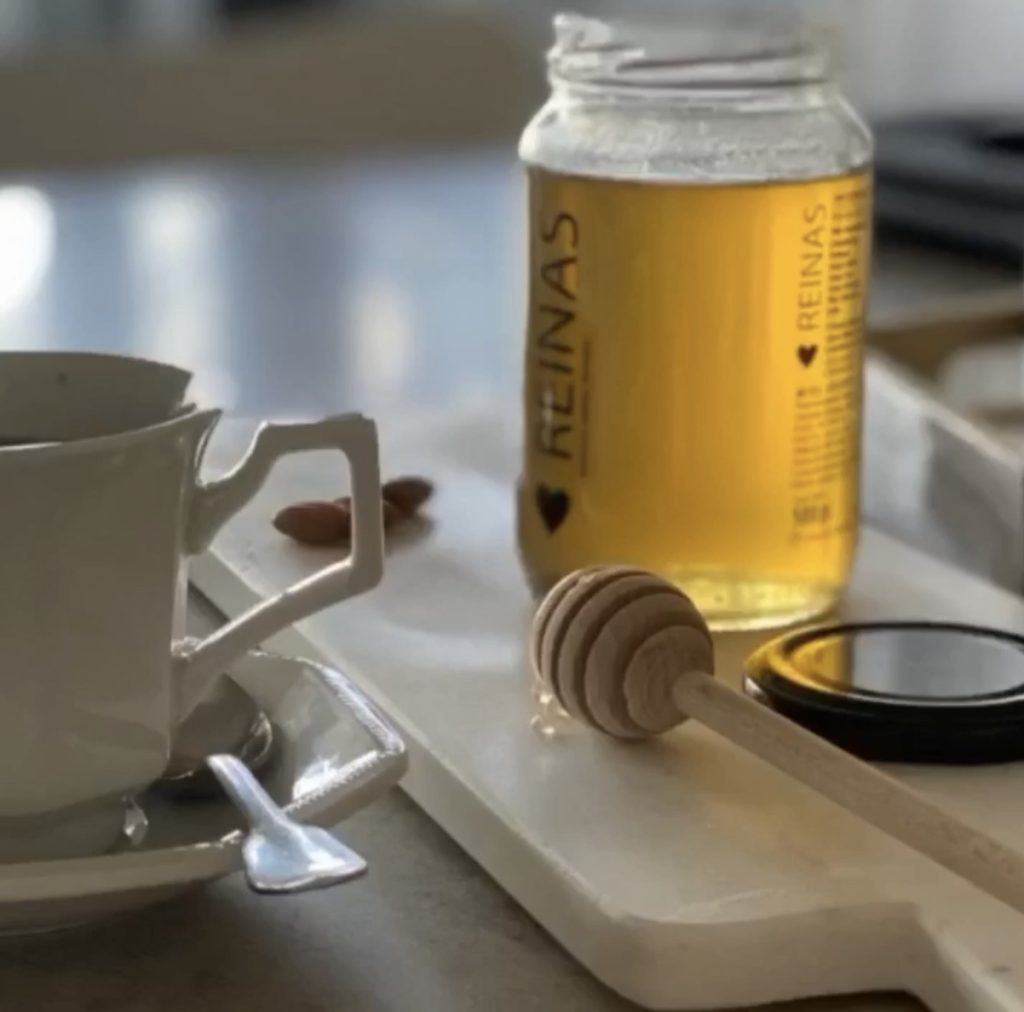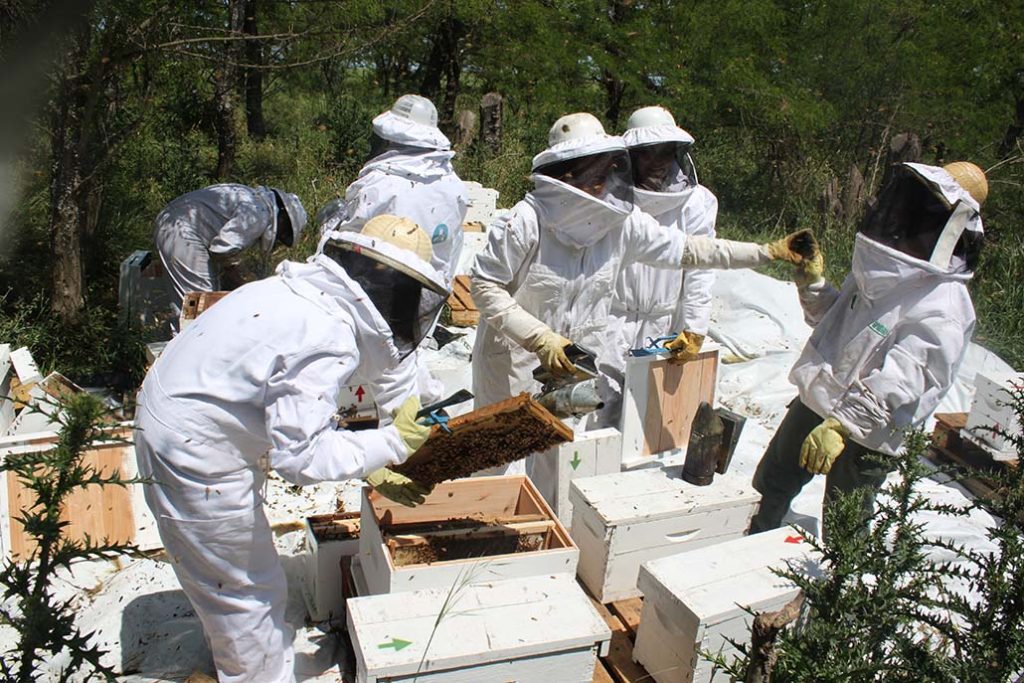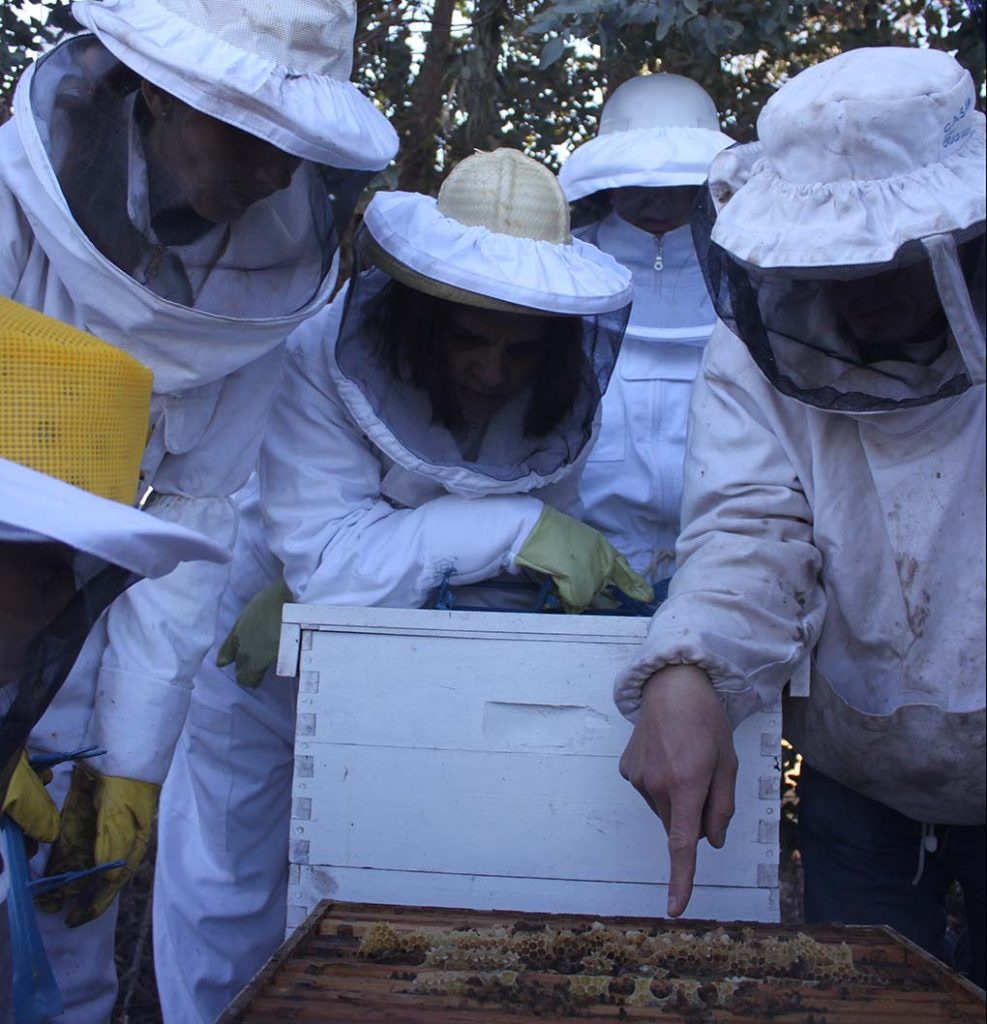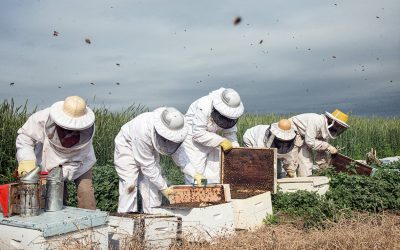By Valeria Pirotta | 21-08-2020 10:00hs
In Pehuajó, province of Buenos Aires, Marina Muscolo began a path of productive and collaborative development that grows and multiplies creating a huge community of rural women dedicated to beekeeping. El Agrario spoke with the entrepreneur who told us about the project and its social, productive and environmental benefits.

El Agrario spoke with Marina Muscolo, Agronomist, who is the “alma mater” of the Reinas de Corazones project. It is a productive model of beekeeping carried out by rural women with three fundamental principles: sustainability and care for the environment, social commitment and economic development.
It all started four years ago when Marina, knowing the environmental benefits of the activity, started beekeeping. Then Haidee and Pilar joined, and shortly after Male and Verónica and thus, by word of mouth, “weaving networks” through close people, family and friends, more rural women became involved.
The project started in Pehuajó, in the province of Buenos Aires, where Marina is based, but it soon spread to other regions of the province. Thanks to “Azul Solidario”, women from that town joined in, also in General Madariaga through INTA (National Institute of Agricultural Technology) in the region, Monte, Lobos, Cañuelas and other areas of Buenos Aires and the country
It is a group of independent rural women who work together in a collaborative way: “We partner to train with INTA, to set up purchasing pools and get a better price, to seek financing and to sell part of our production”, Marina explained to us.
The spirit of the group is to function as a «chain of favors», as Muscolo defines it, in which each new entrepreneur who joins learns the trade from the hand of the rest of the Reinas team and is given an initiation kit composed of the mameluke, the smoker and beehives. The accompaniment is constant, especially in the first steps, the beekeepers visit and work together with the new entrepreneurs in their hives and they learn in the field, “doing”, explains Marina. Then, part of the production can be donated to be branded as Reinas de Corazones, sold together for the purchase of new starter kits, for those who join the following year.
In this way, each one has not only “the possibility of receiving, but of giving again, not only the material but also the knowledge,” says Marina with pride, since the objective of the project is the cooperativism that characterizes all solidarity associations. of work.

The pandemic disabled them to continue transmitting knowledge and forced them to rethink how to do it, and thus the virtual days arose. Always hand in hand with the National Beekeeping program of INTA Proapi. Originally thought to accompany the training of Reinas de Corazones beekeepers, they gained impetus and became a multiplier channel to explore and lear the occupation. Soon it expanded to all regions of the country and also outside of it, sheltering rural women with interest in the activity in Colombia, Brazil, Peru, Venezuela, Mexico, the Dominican Republic, Guatemala, Paraguay, Chile, even Canada and Israel.
There are no frontiers for virtuality, and neither for the desire to transform the realities of rural women through “know-how”, the spirit of Reinas de Corazones. Marina, enthusiastically about virtual trainings whose places filled up quickly, expresses that she does not want to stop adding these free lessons because “there must be a woman there, who is in need of precisely this and we have not got to her yet.”
The project “brings many benefits to the farm grower because, first of all, it helps the families to settle in the countryside, a common problem, by giving women this possibility of development. And also it generates an environmental benefit for the countryside, because it collaborates in the yields of several crops “, says Muscolo. In addition, the bee “pollinates forage pasture plants” which produce more and better seeds, stronger plants against diseases and pests and of higher quality, which contributes to a healthier ecosystem.
In addition, explains Marina, all resources are just there in nature, where the necessary flower bloom to undertake the activity, “the only thing you have to do is put a beehive and a person who knows the occupation.” On the other hand, “women who live in the countryside, have the hives there, do not have the cost of transportation, less carbon is released into the environment and today 20% of the costs of honey is transport”, reducing costs and reducing the negative impact on the environment.
FAO studies indicate that correct and constant pollination can increase production yields by up to 24 percent. “The bee is very important for nature and the planet as we know it, because a third of the food we consume depends directly or indirectly on pollination,” explained Marina Muscolo.
In this sense, the interviewee told us that they are in the process of certifying the company as a B Corp or triple impact company. This certification includes the companies that aim, not only to generate benefits in the social aspect, but also in the environmental and economic ones, in a sustainable way and with less impact on the ecosystem.

On the other hand, as the beekeeper explains to us, the production of honey «is an activity of quite tight numbers, which depends a lot on the climate, and the price has good years and bad years. To be able to ease the bad years, we are working on diversifying and taking advantage of all the products of the hive. So, since last year, we are providing the pollination service “. In addition, she expressed that they are investigating other resources offered by the hive such as living material, wax and propolis.
The Reinas de Corazones company, which impacts more than 60 beekeepers and more than 2,600 hives in total, with an estimated production of 25 kilograms for each one, is preparing to export, in principle, to neighboring countries. Within this total of hives there is a range of realities, for example Marina Muscolo tells us that she has 78 hives, two apiaries, one in Pehuajó and another on the seaside coast that is certified organic. But there are also producers, that started the activity recently, with two hives and others that already have 500 hives. Despite this productive diversity, mutual collaboration is the guiding motto of the group.
Finally, it is important to say that the honey sold in the half kilogram silk-screened and reusable glass jars, is packed in a certified room, has a gluten-free seal, and is a product endorsed by SENASA (National Health Service and Agrifood Quality) and DIPA (Directorate of Industries and Food Products).
Those who are interested in the product can contact them through the Instagram profile of Reinas de Corazones where all sale points are listed.







0 Comments